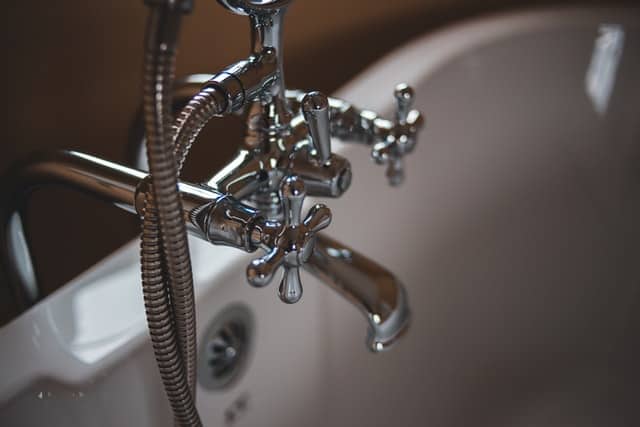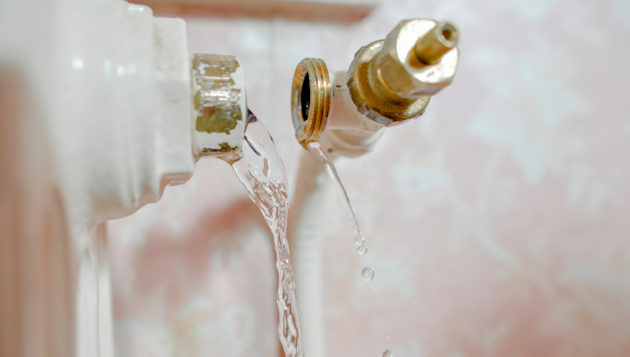Smart Winterizing Solutions: A Handful of Approaches to Preserve Your Pipes in Cold Weather
Smart Winterizing Solutions: A Handful of Approaches to Preserve Your Pipes in Cold Weather
Blog Article
Presented here below yow will discover more first-rate information and facts related to Winterizing Your Pipes.

All home owners that live in temperate environments must do their finest to winterize their pipes. Failing to do so can spell catastrophe like icy, broken, or ruptured pipes.
Switch on the Faucets
When the temperature decreases and it appears as if the frigid temperature level will last, it will certainly help to switch on your water both indoors as well as outdoors. This will certainly keep the water flowing through your plumbing systems. Furthermore, the movement will certainly slow down the freezing procedure. Notably, there's no requirement to turn it on full blast. You'll end up losing gallons of water this way. Instead, go for about 5 decreases per min.
Open Up Closet Doors Hiding Plumbing
When it's chilly outside, it would certainly be helpful to open cabinet doors that are camouflaging your pipes. Doing this small trick can keep your pipes warm and limit the potentially dangerous end results of freezing temperature levels.
Require Time to Cover Exposed Water Lines
One clever and easy hack to warm up icy pipelines is to cover them with cozy towels. You can cover them first with towels. After securing them in place, you can pour boiling water on the towels. Do it gradually to allow the towels take in the liquid. You can also make use of pre-soaked towels in hot water, simply do not fail to remember to wear protective gloves to safeguard your hands from the warm.
Attempt a Hair Clothes Dryer or Warm Weapon
When your pipes are virtually freezing, your reliable hair dryer or warmth gun is a blessing. Bowling warm air directly right into them may help if the warm towels do not assist dislodge any working out ice in your pipelines. Nevertheless, do not utilize other items that generate straight fires like a blow lantern. This can lead to a larger calamity that you can not regulate. You might end up destructive your pipes while attempting to melt the ice. As well as in the long run, you may also wind up shedding your residence. So beware!
When Pipes are Frozen, shut Off Water
If you notice that your pipelines are totally icy or almost nearing that stage, turn off the primary water shutoff immediately. You will typically find this in your basement or utility room near the heating unit or the front wall surface closest to the street. Transform it off immediately to avoid additional damages.
Do not neglect to shut outside water resources, as well, such as your connection for the yard residence. Doing this will certainly stop additional water from filling out your plumbing system. Unfortunately, with even more water, even more ice will certainly accumulate, which will eventually lead to rupture pipes. It is best to call an expert plumber for an evaluation if you are unsure about the state of your pipes this winter months. Taking this aggressive strategy can conserve you countless bucks out of commission.
All property owners that live in temperate climates should do their finest to winterize their pipes. Failing to do so can mean catastrophe like frozen, cracked, or ruptured pipes. If the warm towels do not assist dislodge any kind of working out ice in your pipelines, bowling hot air directly right into them might aid. Turn off the primary water shutoff right away if you see that your pipelines are completely icy or practically nearing that phase. With more water, more ice will certainly pile up, which will at some point lead to rupture pipelines.
PREVENT YOUR PIPES FROM FREEZING THIS WINTER
A Leading Cause of Property Damage
When the weather is taking a deep nose dive into the cold dreary days, the risk of your pipes freezing and potentially bursting skyrockets. Unfortunately, during these cold dreary months, burst pipes are the most common denominator for property damage. The pipes that are most at the risk are those that are in areas where it is most cold in your home. For instance, pipes located in interior places such as basements, attics, and your garage. Unfortunately, that doesn’t mean that the pipes running through your cabinets or exterior walls can’t freeze. Good news, however, is that you can do things to help prevent pipes from freezing.
How to Prevent Pipes From Freezing
Once the temperature starts to drop during the winter, you should be taking the proper measures needed to ensure that your pipes stay warm and that there is circulation of water through them. Some steps that experts may recommend could go against your better judgement when it comes to saving water and heat. However, it would go without saying that when expenses are compared, damaged pipes could put a bigger dent in your wallet than a water bill.
What Can I Do?
Keep your garage door closed. This is very important, especially if you have water supply lines running through your garage. Open your kitchen and bathroom cabinets to allow warm air to circulate through them. Allow air circulation throughout your home. Keeping the interior doors open will once again allow the warm air to circulate inside your home. Ensure your thermostat is running the same temperature throughout the night and day. If you plan to be away from home during the cold months, set your temperature no lower than 55° F. This should provide enough heat to keep the pipes warm and prevent any remaining water inside the pipes from freezing. For more of a long-term solution, add insulation to attics, basement, and other crawl spaces around your home. By allowing your faucet to drip, it will alleviate pressure in the system. This is important because the pressure that is created between the blockage and the faucet can potentially cause the pipes to burst. Allowing the faucet to drip will prevent the pressure from building up, therefore keeping the pipes from bursting. Seal any cracks, openings, and crawl spaces around your home to prevent cold air from coming inside. This keeps your pipes-not to mention your home-warmer and less susceptible to issues caused by freezing temperatures. For the pipes in your home that are easily accessible, applying electrical tape to them might prevent them from freezing over. This is a quick fix, as you can apply the tape directly to the pipe. There are two options for heating tapes. One turns on and off by itself when it senses heat is needed. The other type of heating tape needs to be applied when heat is needed and removed when not necessary. If you have exposed pipes in your home, you can check this website to take a look at a few options that would be available at a shop near you.

We had been made aware of that report on How to Prevent Frozen Pipes from someone on a different web blog. You should set aside a second to promote this post if you enjoyed reading it. Thank you for your time. Visit again soon.
Overflow issues? Our professionals await. Report this page